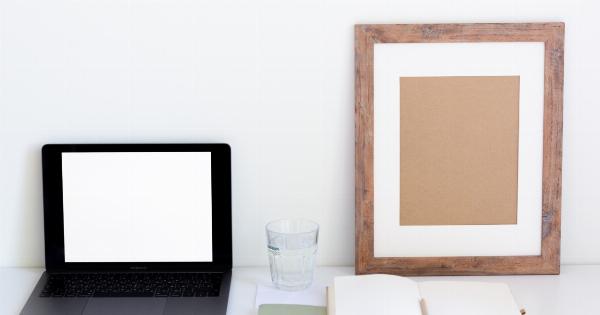Insomnia is a common sleep disorder that affects millions of people worldwide. It can disrupt your sleep routine, leaving you feeling tired and groggy during the day.
While there are various over-the-counter and prescription medications available for insomnia, they come with a range of side effects and can be addictive in some cases. Fortunately, there are several natural remedies that can help you improve your sleep quality without the need for medication. Here are ten natural home remedies for insomnia:.
1. Chamomile Tea
Chamomile tea is known for its calming and soothing properties. It has been traditionally used for centuries to relieve anxiety and promote relaxation.
Chamomile contains apigenin, an antioxidant that promotes sleep by binding to specific receptors in the brain. Drinking a cup of chamomile tea before bedtime can help you fall asleep faster and stay asleep longer.
2. Lavender Essential Oil
Lavender essential oil is another natural remedy that can help you sleep better. It has a calming effect on the nervous system and can help reduce anxiety, depression, and stress.
You can diffuse lavender oil in your bedroom or add a few drops to your pillow before bedtime to promote relaxation and improve sleep quality.
3. Magnesium Supplements
Magnesium is an essential mineral that plays a significant role in the body’s regulation of sleep. It helps to calm the nervous system and promote relaxation, making it easier to fall asleep.
Studies have shown that magnesium supplements can improve sleep quality and duration, especially in older adults. You can take magnesium supplements before bedtime to improve your sleep quality.
4. Valerian Root
Valerian root is a herb that has been used for centuries to treat anxiety, stress, and insomnia. It contains compounds that can help to calm the nervous system and promote relaxation.
Several studies have shown that valerian root can improve sleep quality and reduce the time it takes to fall asleep. You can take valerian root supplements or drink valerian root tea before bedtime to promote relaxation and improve sleep quality.
5. Tart Cherry Juice
Tart cherry juice is a natural source of melatonin, a hormone that regulates the sleep-wake cycle. Drinking tart cherry juice before bedtime can help increase melatonin levels in the body, making it easier to fall asleep and stay asleep.
Several studies have shown that tart cherry juice can improve sleep quality and duration in both men and women.
6. Passionflower
Passionflower is a herb that has been traditionally used for centuries to treat anxiety, insomnia, and other sleep disorders. It contains compounds that can help to calm the nervous system and promote relaxation.
Several studies have shown that passionflower can improve sleep quality and reduce the time it takes to fall asleep. You can take passionflower supplements or drink passionflower tea before bedtime to promote relaxation and improve sleep quality.
7. Exercise
Regular exercise is an effective way to improve sleep quality and duration. Exercise can help to reduce stress and anxiety, improve mood, and promote relaxation.
It also increases body temperature, which can help to trigger the body’s natural sleep cycle. However, it is essential to avoid exercising too close to bedtime, as it can interfere with sleep quality.
8. Meditation
Meditation is a natural technique that can help to calm the mind and promote relaxation. It can help to reduce stress and anxiety, improve mood, and promote sleep.
Several studies have shown that regular meditation can improve sleep quality and reduce the time it takes to fall asleep. You can try meditation techniques such as deep breathing, guided meditation, or mindfulness meditation before bedtime to promote relaxation and improve sleep quality.
9. Aromatherapy
Aromatherapy is the use of essential oils to promote health and well-being. Essential oils such as lavender, chamomile, and valerian can help to calm the nervous system and promote relaxation.
You can diffuse essential oils in your bedroom or add a few drops to your pillow before bedtime to promote relaxation and improve sleep quality.
10. Sleep Hygiene
Sleep hygiene refers to the lifestyle habits and environmental factors that can affect sleep quality.
Good sleep hygiene includes establishing a regular bedtime routine, avoiding caffeine and alcohol before bedtime, relaxing before bedtime, and keeping the bedroom dark, quiet, and cool. Practicing good sleep hygiene can help to improve sleep quality and duration.






























